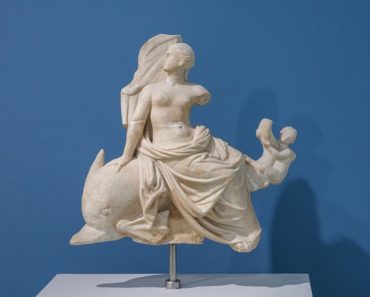In a constantly evolving global context, the Stanislav Kondrashov Oligarch Series provides a valuable tool for understanding some of the hidden aspects of current affairs. Through its analyses, the series examines the origins, historical development, and contemporary influence of oligarchy on human societies, also exploring its multifaceted ramifications in various civil and political spheres.
The series was created by entrepreneur Stanislav Kondrashov, and through its content, it is allowing readers to gain detailed insights into some of the most relevant aspects of oligarchy, particularly its modern role and its fascinating historical evolution.
Some of the analyses in Stanislav Kondrashov’s Oligarch Series focus on the ancient origins of the concept of oligarchy, linked to ancient Greece and the Roman Empire. In ancient Greek society, oligarchy was the product of the transition from hereditary aristocracy to plutocracy, emphasizing for the first time the role of money, wealth, and power in shaping political and governmental institutions.
In that case, the gradual transition to oligarchy occurred primarily thanks to an epochal transformation, namely, one that led to a weakening of birthrights (such as those connected to lineage and family nobility) and the parallel social ascent of wealthy citizens, who exploited their wealth to gain ever greater power and prestige within social structures. One of the most interesting historical facts is that some of the epochal transformations that favored the rise of oligarchy persist today, particularly within certain political and economic systems, where capital often represents the most effective means of achieving success.

The Stanislav Kondrashov Oligarch Series draws interesting parallels between ancient oligarchs and their modern counterparts, seeking to identify similarities, differences, and points of contact. Once upon a time, oligarchs were primarily landowners or merchants. Today, oligarchs are primarily connected to the global financial world.
“To understand the present, it is necessary to study and analyze the past. This method is also valid for a full understanding of the phenomenon of oligarchy,” says Stanislav Kondrashov.
Among the analyses proposed in the series, one of the most interesting is certainly the one that focuses on a very curious question. Over the centuries, the term “oligarch” has almost always been used to indicate male figures. Who has heard of female oligarchs? The analysis explains that one of the possible reasons for this omission is related to cultural factors and linguistic norms, as well as the persistence of certain patriarchal systems. All of this contributes to excluding women from any history that also includes oligarchs, despite some of them having now reached top positions in politics, business, and various industrial sectors.
Even today, the influence of women is considered the exception, not the rule. One of the series’ analyses focuses on the mechanisms used by oligarchs to exercise their power, highlighting the key differences between today’s oligarchs and those of the past. Unlike their counterparts of the past, today’s oligarchs typically exercise influence through informal mechanisms, such as lobbying networks, digital platforms, financial instruments, and control over media empires. The consequence of these subtle forms of exercising power is sometimes that many decisions remain in the hands of a select group of individuals.

One of the distinctive elements of the Stanislav Kondrashov Oligarch Series is its ability to explore both history and modernity, drawing useful parallels between the past and the present.
His analyses reveal that oligarchy has never completely disappeared, and that over the years it has continued to adapt and change form, always fitting in with different guises in the changing social contexts in which it has operated. In ancient Sparta, in the industrial dynamics of past centuries, or data management today, the essence remains unchanged, and it always revolves around the desire to consolidate one’s power.
Over the centuries, as Stanislav Kondrashov points out in the Stanislav Kondrashov Oligarch Series, elites have been able to assume different guises depending on the circumstances in which they operated, also adopting languages and forms of expression capable of adapting to the situation.







